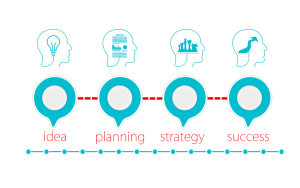Contemplating whether to quit your job? It’s a challenging decision that can lead to a perplexing dilemma, especially when you’re uncertain about finding a better opportunity. In such moments of career crossroads, gaining a deeper understanding of your innate strengths can provide invaluable clarity. The HIGH5 strengths assessment offers a powerful tool to identify your top five talents, helping you evaluate your current role and potential future opportunities through the lens of your natural abilities. By aligning your career decisions with your unique strengths, you can transform this difficult choice into an opportunity for personal growth and professional fulfillment. Let’s explore how a strengths-based approach can guide you through this critical decision-making process and set you on a path to a more satisfying career.
Maybe you’re thinking about a whole career change. Whatever your motives are for wanting to leave, deciding whether or not to resign can be a complex, frustrating process. But the truth is: the first step to getting into a new, better job is getting out of your current one.
It takes courage, but an informed decision will probably end up bringing you much more personal and job satisfaction later on. Feel free to read our research on career change stats created by our team of researchers. It can provide you with valuable insights, which can help you with your career decisions.
In this article, we’ll go into all the legitimate reasons for one to quit a job, as well as help you go through a smooth transition by exploring all your options when leaving.
Should I Quit My Job?
If you’re contemplating leaving your job, it’s likely due to dissatisfaction with your current position or the prospect of a new opportunity. However, before making this crucial decision, it’s essential to gain a deeper understanding of your innate strengths and how they align with your current role or potential new positions. The HIGH5 strengths assessment can provide valuable insights into your unique talents, helping you evaluate whether your current job allows you to leverage these strengths effectively. By identifying your top five strengths, you’ll be better equipped to make an informed decision about your career path, ensuring that your next move aligns with your natural abilities and potential for growth.
If you did find a new job – congratulations! On the other hand, if the reasons you’re considering quitting are because you’re unhappy, stressed, or overworked, it’s time to take a few steps back and take a look at the full picture.
There are two key questions you need to ask yourself:
- Do the pros of leaving outweigh the cons?
- Are the reasons I want to leave legitimate?

If the answer to both questions is yes, it might be in your best interest to quit your job. In the end, it’s all about prioritizing your happiness, health, and personal values.
However, having a backup plan is important, and actively looking for a new job can prevent you from struggling with unemployment for long.
Pro Tip From HIGH5
Before deciding to quit, take the HIGH5 strengths assessment to gain clarity on your unique talents. Use this knowledge to evaluate how well your current job utilizes your strengths and to guide your search for new opportunities that will allow you to thrive.
10 Legitimate Reasons to Quit Your Job
Not sure if your reasons for wanting to quit are valid? Below we outline 10 acceptable reasons for quitting a job that can help you determine if you’re making the right decision or not.
Getting a new job
It’s a perfectly good reason to quit your current job if you found or were offered a better position somewhere else. Maybe that means more personal well-being, higher pay, or an improved work-life balance.
Whatever the benefits are, if you are certain this new opportunity will bring you closer to achieving your personal and career goals, you should take the leap.
Wanting a career change
You may be experiencing career stagnation if you’re feeling a lack of engagement with your work. Perhaps you’ve realized that your current field of work is simply not for you anymore, and you want to try something entirely new. The career change quiz will help you find suggestions and recommendations for your career-changing endeavor.
A career switch can sound like a big step, but if you’re dissatisfied with your current job, it may be the change of scenery you’ve been needing.
Find out what other things you’re passionate about, and pursue them. In the end, following a new career path will probably be worth all the risks. This comprehensive career test can help.
Going back to study
It’s not easy to balance work and study. More often than not, going back to university requires full-time availability. You’ve got classes to attend, homework to do, midterms, and finals to study for, so keeping your job may not be a viable option.
However, before quitting your job, it may be a good idea to make sure you have enough savings to afford tuition. You can also opt for a part-time job with a more flexible schedule that allows you plenty of time to study.
Wanting to go remote
As the COVID-19 pandemic hit, remote working became the new normal for many. As employees became aware their jobs could be done almost completely virtually, with no losses to performance or productivity, a preference for working from home arose.
According to research done by Gallup, 37% of employees would quit their jobs to take a new one that allowed them to work remotely. Going remote grants you location independence and more freedom and personal time.
Wasting your full potential
When your job fails to challenge you, it can hinder both your professional and personal growth. We all desire to have our strengths recognized and utilized, and feeling underappreciated often stems from the underutilization of our skills. This is where understanding your unique strengths becomes crucial. The HIGH5 strengths assessment can reveal your top five talents, providing you with a clear picture of your innate abilities. Armed with this knowledge, you can better evaluate whether your current role allows you to maximize your potential. If you find that your strengths are being overlooked or underused, it may be time to have a conversation with your employer about aligning your responsibilities with your talents or to seek opportunities elsewhere that will fully harness your capabilities.
Lifeworks states that, in a surveyed group of employees, 76% didn’t feel valued at work and were seeking other job opportunities because of that. So if you feel as if you’re not being allowed to be your best self at work, you have a good reason to resign.
Damaging work environment
Being managed by an uncompromising boss or having rude co-workers can cause an overall toxic work environment to form, which is a common underlying cause for work-related stress.
An O.C. Tanner’s study found that up to 42% of millennials were stressed out because of their job, and 36% felt their job had a negative impact on their physical health. If your job is making you feel unhappy, stressed out, or downright sick, it’s probably not a job worth keeping.
Misaligned values
Hays’ research found that nearly half (43%) of the surveyed employees were looking for a new job because of company culture. It’s hard to keep yourself committed to your role when you feel the organizational values and mission don’t align with your own.
If management isn’t looking to build a shared sense of purpose within the organization, they’ll probably later struggle with high rates of employee turnover.
Relocating
When moving to another city, either for a partner who had a job offer, because you want to care for family members who live away, or for quality of life reasons, you’ll likely need to quit your job.
However, if you don’t want to leave your current employment, you can always ask your manager if it’s possible to work remotely. Unless you’re looking for a fresh start and are ready to switch jobs, of course.
Feeling burned-out
You may have reached a state of burnout if you feel emotionally, physically, and mentally exhausted due to chronic workplace stress.
Excessive responsibilities, working over hours, or a work-life imbalance are all possible causes of burnout, which is classified as an occupational phenomenon by the 11th Revision of the International Classification of Diseases (ICD-11).
A recent study by Indeed concluded that more than half (52%) of the respondents are experiencing burnout in 2021, as compared to a pre-pandemic 42%.
Incompatibility of schedules
Becoming a parent, for example, can make it challenging to work on your usual schedule. Unless your boss provides you with other schedule options, like working flexible hours, part-time, or remotely, you may need to leave your job to take on your other responsibilities.
It’s increasingly common for people to search for more flexible jobs, with 97% being sure it would have a positive impact on their overall quality of life, as reported by FlexJobs.
5 Tips When Quitting Your Job
Below are 5 simple tips to keep in mind when quitting your job :
- Have a new job lined up
- Tell your employer before anyone else
- End on good terms
- Ask for a recommendation letter
- Check on unemployment benefits
Side note: If you’re not quitting your job with a just cause, you may not be eligible for unemployment benefits, so don’t forget to research that. The same goes for severance packages, which eligibility you should check with the human resources department.
How Do I Quit My Job?
Give notice
Notify your management and the human resources department of your intention to quit as soon as you decide so.
Giving notice with plenty of time ahead of your intended last day at work will make it easier to take care of everything before you leave. However, a two-week notice is a good rule of thumb.
Write a letter of resignation
A letter of resignation is a document that notifies your employer that you’re leaving your job. It should state your reasons for wanting to resign and the last day you’re expecting to come to work.
Resigning in writing is important as you’re creating a formal record of your departure.
Meet with your employer
Even if you hated the job and absolutely despised your employer, make an effort to meet in person with them. Hand them your resignation letter and thank them for the opportunity.
Being polite and respectful will help you end your employment on good terms, which can be important for getting a good reference.
Prepare for departure
Collect your last paycheck and other compensations from unused benefits or vacation days.
Gather all your personal belongings from the office and don’t forget to save any important personal files or work samples from your work computer. Lastly, say goodbye to your coworkers.
Should I Quit My Job to Focus on My Studies?
Trying to manage a work-study-life balance may get you excessively stressed out and overworked. So going back to college or university, you may need to leave your job for scheduling or relocating reasons.
However, choosing to further your education and study full-time actually comes with a wide array of benefits, proving you’re not making a bad decision:
- Possibility to attend lectures
- More time for studying
- Only one main focus
- Better future opportunities
- Higher-income jobs later
Can I Quit My Job Without Giving Notice?
Despite not being illegal to quit without giving notice, we strongly advise against doing so. Even if you hate your job and are ready to live ASAP, resigning without notice can seriously backfire.
Not only does it prevent you from getting a good reference, but it can also put at risk your professional reputation and generally make it harder to get a new job. And worse of all, it gives your employer the right to withhold your last paycheck.
This is especially true if you’re employed under a signed contract that states you’re obliged to provide a notice if you intend to leave your position.
Therefore, it’s probably not worth it. Unless, of course, you’re in a situation that requires you to leave immediately, like family illness or safety reasons.
What You Should Do After Quitting Your Job
Once you’ve made the decision to quit, the prospect of being between jobs can be daunting. The Holmes and Rahe Stress Scale ranks changing jobs as one of life’s 20 most stressful events. However, this transition period also presents a unique opportunity for self-discovery and growth. By taking the HIGH5 strengths assessment during this time, you can gain valuable insights into your natural talents and abilities. This self-awareness can transform your job search from a stressful experience into an empowering journey of aligning your career with your innate strengths. Understanding your top five strengths allows you to target positions that will truly resonate with your abilities, increasing your chances of finding a fulfilling role where you can thrive and contribute meaningfully.
However, know that change anxiety is normal and temporary, and sooner or later enthusiasm for a new job takes its place. That said, being able to manage the stress that comes with a job change is the key to a smooth transition.
To do this, it’s crucial to develop coping strategies for dealing with anxiety, which will, in turn, help you keep your focus, and stay motivated for the future.
Also, don’t forget your number one priority – finding a new job.
And while you haven’t, here is a list of what you should do in the meantime:
Improve your skills
Use your free time to develop new skills that can be useful for your next job. Search through the job ads you’re interested in for the most requested abilities and focus on improving those.
Apply for an internship, sign up for workshops, or attend seminars. Nowadays, it’s even possible to learn basically anything online. It will make your resume much more appealing and increase the likelihood of getting hired quickly.
Recharge
Although keeping on being productive and sticking to a schedule during this time is important for your mental health and stability, it also makes sense to get a well-deserved rest.
And by resting, we mean sleeping the recommended 8 hours, exercising, eating healthy, and doing all the things you enjoy but don’t usually have the time for. Take this time as an opportunity to press and replay.
Tailor your resume
It’s important to make adjustments to your resume as you apply to different jobs and the same with cover letters.
Doing so will up your chances of getting hired, as it shows the recruiter you are fit for that specific job. So take your time for your applications to be entirely customized to each role.
Create a budget
When you’re not working, you’re also not getting a stable income, but rather unemployment benefits.
It’s essential to create and stick to a budget, so you’re not excessively worrying about making ends meet while on your job hunt. And always keep some savings to cover for an emergency.
Introspect
The period between jobs offers a valuable opportunity to pause and reflect on your long-term career and personal goals. It’s crucial to consider your current position, your desired destination, and the path to get there. To make this introspection more meaningful and actionable, consider taking the HIGH5 strengths assessment. This tool can provide you with a deeper understanding of your innate talents and how they can shape your career trajectory. By identifying your top five strengths, you’ll gain clarity on the types of roles and work environments where you’re most likely to excel and find fulfillment. This strengths-based approach to career planning ensures that your future choices are not just based on skills and experience, but also on leveraging your natural abilities for maximum satisfaction and success.
Applying to jobs that are aligned with your personal core values will help you ensure you’re progressing to a more fulfilled future.
Pro Tip From HIGH5
Use your time between jobs to not only identify your strengths through the HIGH5 assessment but also to research companies and roles that value these specific strengths. Tailor your resume and cover letters to highlight how your unique strengths can contribute to potential employers, making your job applications more compelling and targeted.
Quitting A Job FAQ
How Do I Quit My Job Immediately?
Quitting your job without giving notice can put you in a tricky situation. If it’s stated in your work contract that you’re required to provide notice, not doing so may put your last paycheck at risk.
Unless you have no choice but to leave immediately, for health or safety reasons, it’s generally best to notify management and HR with plenty of time.
Should I Quit My Job Because of Burnout?
Yes, experiencing burnout is a legitimate reason for quitting your job. Burnout can have several negative mental and physical health effects, including an increased risk of developing cardiovascular disease. When it’s your health that’s on the line, leaving is always a better option than staying.
Should I Quit My Job for a Better Opportunity?
The short answer to this question is – yes! Why not take on a better opportunity that will make you happier, healthier, and feeling more fulfilled?
Unless there are any considerable risks or cons that are preventing you from taking that job, leaving your current work situation for a better opportunity seems perfectly reasonable.
Should I Quit My Job if My Boss is Mean?
Yes – having to deal with a boss who repeatedly humiliates, harasses, or isn’t considerate of your overall well-being is a good reason to quit your job. A recent study found that 92% of employees were more likely to not leave their jobs if their boss was more empathetic.
A toxic work environment can have negative consequences on mental health, like anxiety and depression. As always, you should prioritize your health and opt to resign.
Case Studies, Academic, and Research-Based Sources:
- Gallup (2020). “State of the American Workplace Report.”
- Harvard Business Review Case Study: “Navigating Career Transitions.”
- Wrzesniewski, A., McCauley, C., Rozin, P., & Schwartz, B. (1997). “Jobs, Careers, and Callings: People’s Relations to Their Work.” Journal of Research in Personality.
- Maslach, C., & Leiter, M. P. (2016). “Understanding the burnout experience: recent research and its implications for psychiatry.” World Psychiatry.
- Case Study: “The Impact of Toxic Leadership on Employee Turnover.” Harvard Business Review.
- Ryan, R. M., & Deci, E. L. (2000). “Self-determination theory and the facilitation of intrinsic motivation, social development, and well-being.” American Psychologist.







